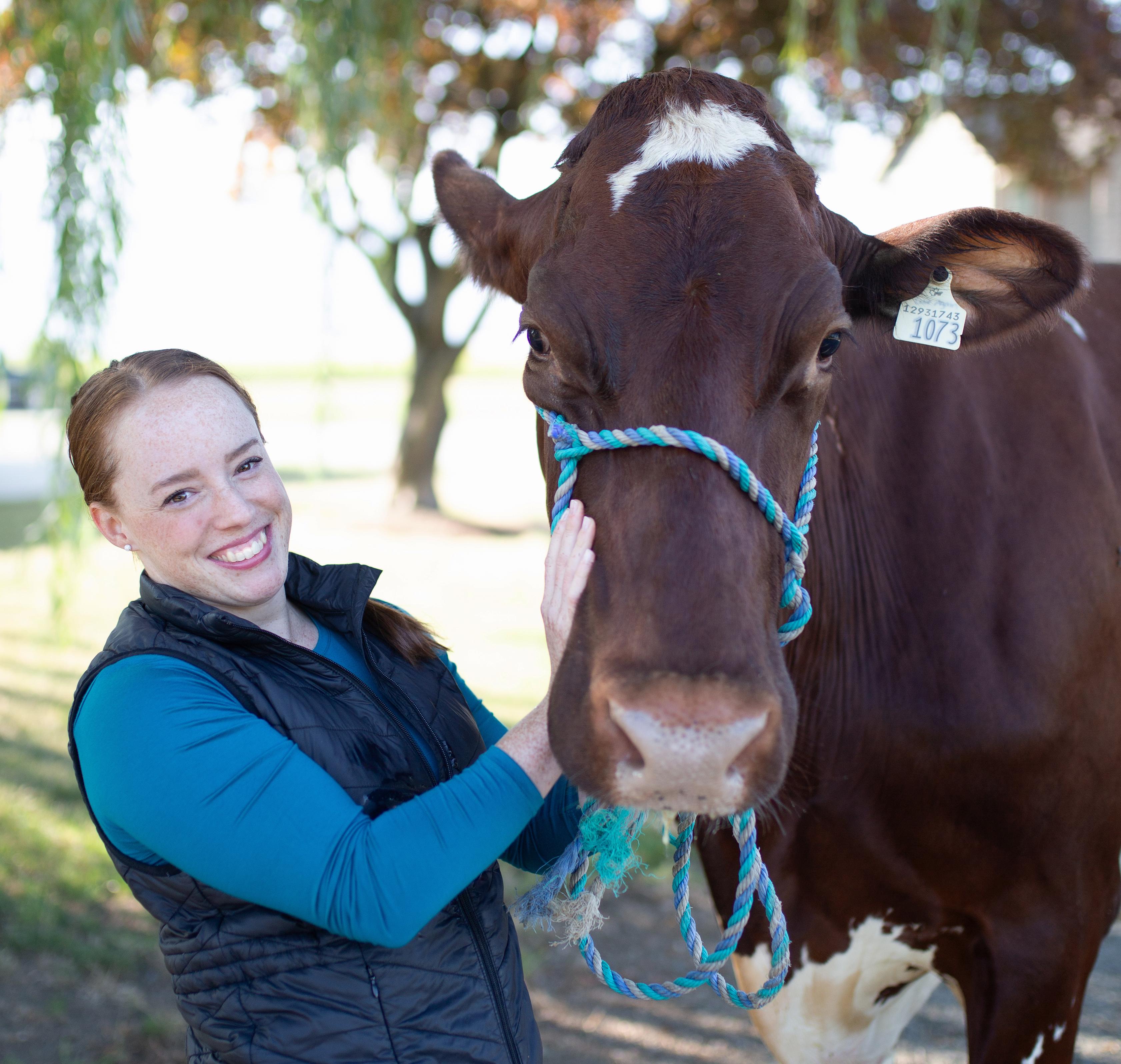Livestock Production certificate
QUICK FACTS
Credential:
Certificate
Duration:
Two semesters
Format:
Full time, Part time
Start date:
January, September
Location:
Chilliwack campus at CEP
Cost:
(Details)
FEATURES:
- Field trips enhance classroom learning
- Practicum provides work experience and industry contacts
- 250 square meters demonstration barn at the UFV Agriculture Centre is a perfect environment for hands-on learning
- Program eligible for financial aid
PROGRAM DESCRIPTION
Students seeking practical training in livestock production can earn a Livestock Production certificate. The program introduces you to the latest practices in animal breeding, nutrition, and health, including:
- Pest biology and identification
- Health and nutrition of farm animals
- Equine production and management
- Management and production of beef, sheep, and goats or management and production of poultry and swine
- Farm and equipment safety
- Soils and soil fertility
- Ruminant animal health
- Forage crop production
- Dairy production and management
As part of the program, you also learn the fundamental business and writing skills required in the workplace.
The one-year program transfers completely to the two-year Agriculture Technology diploma, Livestock Production option. Graduates may also be able to transfer their Livestock Production certificate to other Agriculture diploma programs.
CAREER EXPECTATIONS
Graduates of this program are qualified to seek employment on farms raising livestock, or in related occupations as government technicians, livestock-related supplies representatives, artificial insemination specialists, agricultural services technicians, animal breeders, and more. Some graduates start their own enterprises.
ENTRANCE REQUIREMENTS
View Livestock Production certificate entrance requirements in the UFV Academic Calendar.
OTHER ADMISSION CATEGORIES
Good physical health with a strong desire for hands-on work with livestock is important and you must be willing to carry out physical work. Occupations in the livestock industry frequently are performed outside or in barns. If you have allergies to dust, sawdust, or animals, you should carefully consider whether or not this is the best career path for you.
QUESTIONS?

"I went into the Agriculture Technology Diploma not knowing where I wanted to end up in the agriculture industry. UFV's courses on production animal nutrition and health sparked an interest in the feed industry for me."
- – Karen Scott
- UFV Agriculture Technology Diploma (Livestock option) graduate
